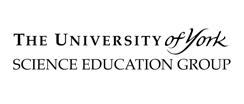- View more resources from this publisher
 University of York Science Education Group (UYSEG)
University of York Science Education Group (UYSEG)
Balancing Acts
A Year Ten module from the Salters’ double award GCSE science course. This module deals with interactions between species in ecosystems. Students are shown how stable conditions lead to a natural balance in populations and how human activities can disturb this balance. Feeding relationships, food chains and food webs are studied and methods of monitoring the environment are introduced.
Finally, the module considers developments in the farming and fisheries industries, and the international nature of many environmental issues.
Section 1: How does the development of our communities affect the environment?
Students collect information about changes over time in their own neighbourhood. They compare biological records for an area before and after development. A role-play exercise encourages consideration of the effects on the environment of developing a river bank for leisure use.
Section 2: What eats what?
A card sort exercise is used to construct food chains and webs. The effect of changing conditions on feeding relationships is considered. Evidence from owl pellets or secondary data is used to show how the feeding patterns of a species can be determined. A more quantitative study of pyramids of number and pyramids of biomass leads to a text exercise on the efficiency of energy transfer in a food chain terminated by a grazing animal.
Section 3: Balancing populations
The effect of phosphates on the growth of algae is studied. Graphical records are used to study the establishment of a population in a new environment, and predator-prey relationships.
Section 4: Keeping watch on the environment
Practical work with an aquarium and pond or stream studies are used to illustrate chemical and biological methods of monitoring the environment.
Section 5: Farming then and now
Changes in farming practices over long periods are considered. A practical investigation measures the effectiveness of a weed-killer. Students compare intensive chemical and organic methods of insect pest control.
Section 6: Fishy tales
Students consider how the fishing industry has developed and how it can cause international tensions related to over-fishing. They study salmon farming and consider issues of pollution of the seas.
Show health and safety information
Please be aware that resources have been published on the website in the form that they were originally supplied. This means that procedures reflect general practice and standards applicable at the time resources were produced and cannot be assumed to be acceptable today. Website users are fully responsible for ensuring that any activity, including practical work, which they carry out is in accordance with current regulations related to health and safety and that an appropriate risk assessment has been carried out.
Downloads
-
Balancing acts 10.67 MB





